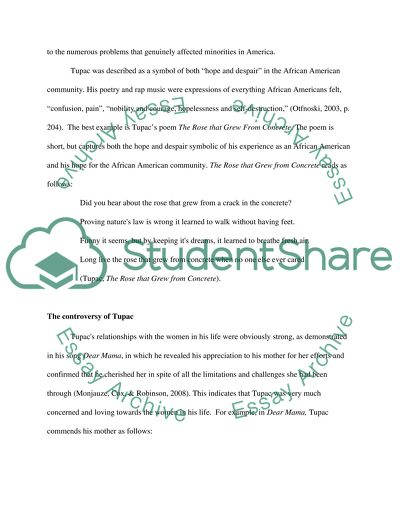Cite this document
(“Case study of Tupac Sharkur Essay Example | Topics and Well Written Essays - 1250 words”, n.d.)
Retrieved from https://studentshare.org/psychology/1653457-case-study-of-tupac-sharkur
Retrieved from https://studentshare.org/psychology/1653457-case-study-of-tupac-sharkur
(Case Study of Tupac Sharkur Essay Example | Topics and Well Written Essays - 1250 Words)
https://studentshare.org/psychology/1653457-case-study-of-tupac-sharkur.
https://studentshare.org/psychology/1653457-case-study-of-tupac-sharkur.
“Case Study of Tupac Sharkur Essay Example | Topics and Well Written Essays - 1250 Words”, n.d. https://studentshare.org/psychology/1653457-case-study-of-tupac-sharkur.


